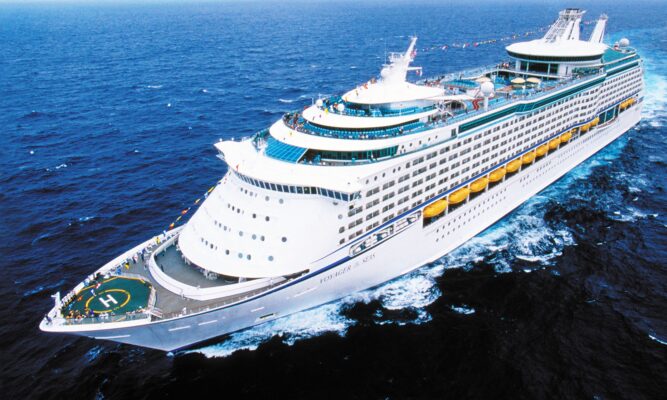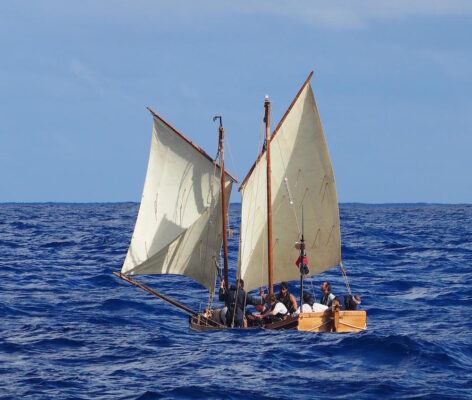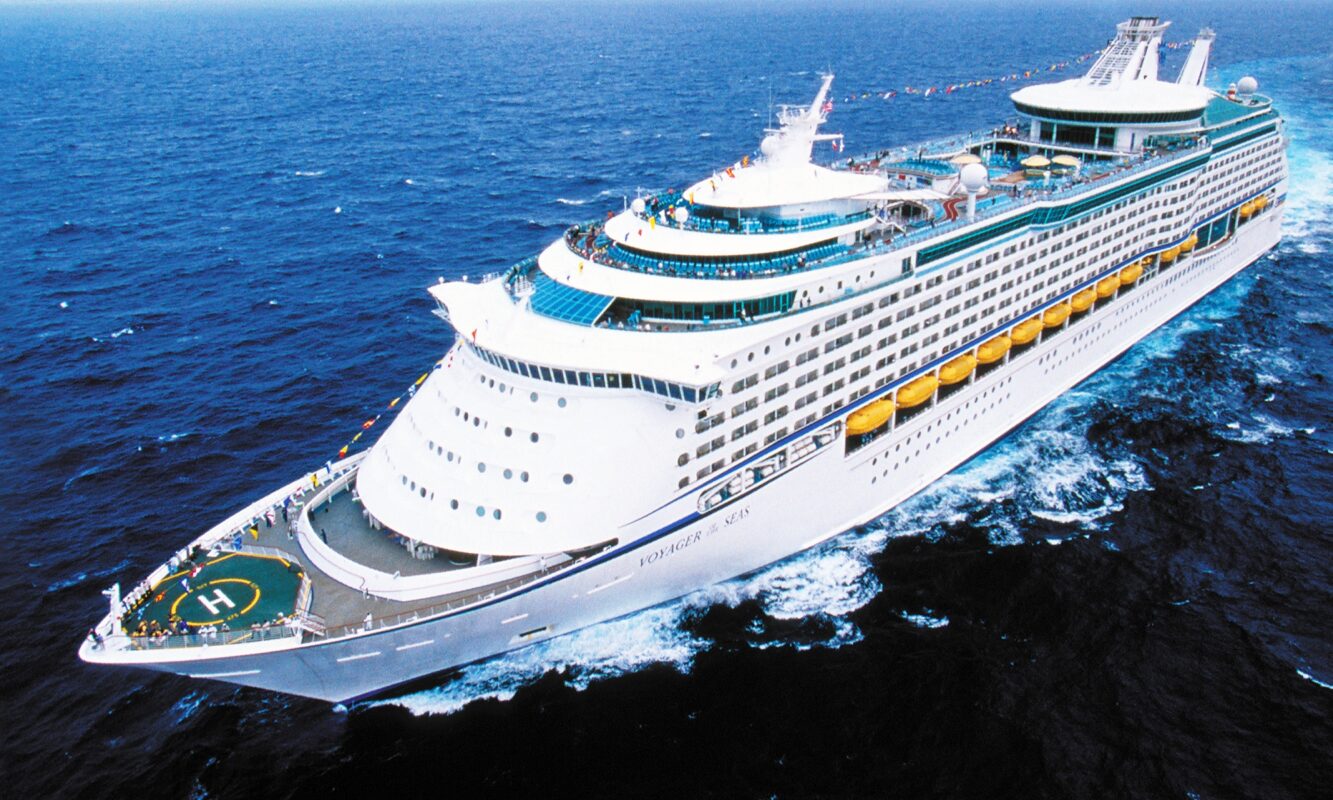When embarking on a sea voyage, whether it be for leisure or work, understanding how to prepare for a sea voyage is crucial for ensuring a smooth and enjoyable experience. The vastness of the ocean can evoke feelings of excitement and apprehension alike. To navigate these waters successfully, it is essential to equip yourself with knowledge and preparation strategies that will help you tackle any challenges along the way. In this comprehensive guide, we explore essential tips that will help you prepare for your maritime adventure.

Understanding the Nature of the Sea
Before setting sail, it is important to grasp the characteristics of the sea you’ll be navigating. Each voyage brings its own set of unique experiences influenced by weather patterns, tides, and the environment.
Recognizing Weather Patterns
The weather at sea can change rapidly, affecting both comfort and safety. It’s essential to familiarize yourself with the common weather patterns of the region you are sailing in.
Understanding local meteorological conditions can significantly impact your experience on the water. For instance, some areas are known for sudden storms while others may present long stretches of calm seas. Research past weather data or consult experienced sailors who have traveled similar routes. This knowledge empowers you to anticipate and adapt to changing conditions.
Additionally, consider downloading marine weather apps that provide real-time updates on forecasts and alerts. These tools can help you stay informed about potential changes and allow you to make proactive decisions to ensure your safety.
Tides and Currents
Tides and currents play a significant role in sea navigation. They can affect your vessel’s speed and direction, making it imperative to know how they operate where you are sailing.
Familiarize yourself with tide charts and current maps relevant to your route. These resources indicate when tides will be high or low, as well as their strengths at different times of day. Planning your departure and arrival around favorable tides can enhance your journey, allowing for smoother sailing and easier docking maneuvers.
It’s also wise to take into account how tides influence particular waterways, such as narrow channels and estuaries, as they may become more hazardous during certain tidal phases. Detailed planning using these elements ensures an efficient and safe journey.
Environmental Awareness
A sea voyage provides a rare opportunity to connect with nature, but with this comes responsibility. Understanding marine ecosystems helps protect the environments you traverse.
Before heading out, research the delicate balance of life in the oceans you will encounter. Be aware of local wildlife, including migratory patterns of birds and marine mammals. Make note of any endangered species or protected areas, and adhere to guidelines to minimize your ecological footprint.
Carrying out responsible practices such as proper waste disposal and respecting aquatic habitats ensures that future generations can enjoy the beauty of the seas as you do. Being environmentally conscious not only enriches your experience but fosters a sense of stewardship for our planet.
Essential Gear and Provisions
Preparing properly for a sea voyage involves gathering the necessary gear and provisions. Your comfort, safety, and overall enjoyment depend significantly on what you bring aboard.

Clothing for Varying Conditions
Selecting the right clothing is essential to staying comfortable throughout your voyage. Layers are key because temperatures can fluctuate dramatically on the water.
Start with moisture-wicking base layers to keep sweat away from your skin. Invest in waterproof outer layers to shield against wind and rain. Don’t forget accessories like hats, gloves, and scarves to protect against sun exposure and cold winds. Packing clothes that dry quickly and are easy to pack maximizes space and minimizes hassle.
Moreover, choose footwear that provides grip and protection. Non-slip shoes with good ankle support can prevent accidents on slick surfaces. Proper attire enhances your experience, allowing you to focus on enjoying your journey instead of battling discomfort.
Safety Equipment
Safety equipment is non-negotiable when preparing for a sea voyage. No matter the size of your vessel, having the right gear can save lives during unexpected situations.
Ensure your boat is equipped with life jackets, flares, fire extinguishers, and first-aid kits. Regularly inspect these items for functionality and compliance with regulations. Brief all passengers on safety procedures and emergency protocols before setting sail.
Consider installing a VHF radio onboard for reliable communication with other vessels or emergency services. Familiarize yourself with distress signals and procedures—being prepared can make all the difference during unforeseen events.
Food and Water Supplies
Provisions for food and water should also be carefully planned. Depending on the duration of your voyage, a well-stocked galley can enhance the overall experience.
Opt for non-perishable foods that require minimal preparation, such as canned goods, dried fruits, and energy bars. Fresh produce can often spoil quickly, so consider how much you need and consume it early in the trip. Don’t forget to bring ample drinking water and a method for purifying additional water if needed.
Additionally, think about meals that can be enjoyed together—sharing food creates a sense of camaraderie among crew members. Mealtime becomes a chance to strengthen bonds and reflect on the day’s adventures.
Navigation Tools
Navigating the open sea requires the right tools to ensure you reach your destination safely. Having a mix of traditional and modern navigation tools can be invaluable.
Invest in marine charts that cover your entire route. Traditional paper charts can serve as backups in case electronic devices fail. Additionally, equip yourself with GPS systems and chart plotters for real-time location tracking.
Don’t rely solely on technology; learn how to read nautical charts, measure distances, and interpret bearings. Familiarity with the fundamentals of navigation will empower you to handle unexpected circumstances and emergencies confidently.
Health and Well-being on Board
Sailing can be physically demanding, and taking care of your health and well-being is vital for an enjoyable voyage. Preparing for potential medical concerns and maintaining a healthy lifestyle will enhance your overall experience.

Preventing Motion Sickness
One of the most common challenges faced by those new to boating is motion sickness. Understanding its causes and preventive measures can make your trip much more pleasant.
To minimize motion sickness, try taking medications recommended for nausea prior to departure. Ginger products, such as ginger tea or candies, may also alleviate symptoms naturally.
In addition, staying hydrated and avoiding heavy meals before sailing can reduce the likelihood of feeling nauseous. If feelings of seasickness do occur, find a spot on deck where you can see the horizon, as this visual reference can help stabilize your inner equilibrium.
Maintaining Mental Wellness
Long journeys at sea can sometimes lead to feelings of isolation or anxiety. Keeping morale high is essential to creating a positive atmosphere onboard.
Engage in activities that foster connection among crew members, such as games, storytelling, or sharing music. Creating routines for relaxation, such as yoga or meditation sessions, can further promote mental wellness during extended periods at sea.
It’s important to remain open and communicative with fellow travelers about how everyone is feeling. Establishing a supportive environment enables individuals to address any stressors collectively and ensures that everyone remains engaged and fulfilled throughout the voyage.
Staying Fit at Sea
Physical fitness plays a crucial role in coping with the demands of sailing. Incorporating exercise into your daily routine while on board can boost your strength and stamina.
Utilize downtime to engage in stretching exercises or bodyweight workouts. Simple activities like walking around the deck or performing push-ups and squats can enhance circulation and maintain muscle tone.
Encourage fellow crew members to participate in group workouts to create a fun and motivating atmosphere. Fostering a culture of fitness not only maintains physical well-being but contributes to team bonding as everyone works towards a common goal.
Emergency Medical Preparedness
Being prepared for medical emergencies at sea is critical. Ensure your first-aid kit is stocked with essential supplies and medications to address various issues.
Familiarize yourself with basic first-aid techniques and healthcare protocols. Take time to learn how to treat common injuries such as cuts, burns, or sprains. Knowledge of CPR and the use of an AED could prove invaluable in life-threatening situations.
Designate specific crew members as first-aid responders and create a plan for handling more serious medical conditions. Have a list of nearby hospitals or clinics accessible through your route in case of emergencies. This preparedness empowers confidence and can save lives.
Enjoying the Experience
Preparing for a sea voyage isn’t solely about practicality—it’s equally about embracing the joy and wonder of being on the water. Strategies for making the most of your time at sea can transform a simple trip into an unforgettable adventure.

Embracing the Natural Environment
One of the greatest rewards of sailing is the opportunity to appreciate nature in its purest form. Use your voyage as a chance to immerse yourself in breathtaking surroundings.
Take time to observe the unique characteristics of the seascape, from vibrant sunsets to playful dolphins. Bring binoculars to witness distant wildlife or invest in a field guide to identify marine species.
Documenting your experiences through photography or journaling allows you to savor special moments long after returning home. Sharing these stories with friends and family can spark conversations and inspire others to embark on their adventures.
Building Friendships
A sea voyage often brings people together in profound ways. Building and nurturing friendships among fellow travelers can enhance the journey significantly.
Encourage open dialogue, trust, and collaboration among crew members. Engage in shared tasks and responsibilities to create a sense of unity. Celebrate successes together, whether large or small—every milestone strengthens connections.
Consider scheduling ‘crew nights’ where everyone shares stories or traditions from their homes. These gatherings cultivate camaraderie and create lasting memories that will linger long after the voyage concludes.
Making Time for Reflection
Amid the hustle and bustle of daily life, a sea voyage presents a unique chance for introspection. Set aside time for quiet reflection to contemplate your experiences, goals, and aspirations.
Find a serene spot on the boat where you can meditate or simply enjoy the tranquility of the open water. Reflecting on your journey can foster personal growth and clarity, helping you return home refreshed and invigorated.
Additionally, engaging in discussions with crew members can yield new perspectives and insights, enriching your understanding of yourself and the world around you.
Capturing Memories
Remembering your sea voyage is vital to reliving the joy and excitement you experienced. Consider various ways to capture these memories for the future.
Create a scrapbook or photo album dedicated to your journey. Include ticket stubs, pressed flowers, or notes reflecting upon your experiences. Alternatively, start a travel blog or social media page documenting your adventure in real-time.
These keepsakes allow you to share your journey with loved ones and provide a tangible representation of the extraordinary moments you encountered along the way.
Conclusion
In conclusion, preparing for a sea voyage requires careful consideration and planning to ensure a successful and fulfilling experience. From understanding the unpredictable nature of the ocean to equipping yourself with necessary gear and provisions, every step plays a vital role in the overall enjoyment of your journey.
Paying attention to health and well-being, actively engaging with the natural environment, and fostering meaningful connections with fellow travelers will elevate your voyage beyond mere transportation. As you embrace the challenges and joys of life at sea, remember that each wave carries the promise of adventure, exploration, and discovery waiting just beyond the horizon.

